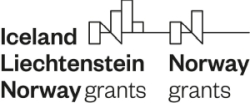 |
Monitoring morskih ekosustava
korištenjem daljinske detekcije
|
Project summary
The RESCOP project - monitoring marine ecosystems using remote sensing in spatial planning - focuses primarily on exploring the potential applications of multifunctional models to support maritime spatial planning in Croatia and Norway, taking into account anthropological pressures and climatic challenges. These models utilise a multi-parameter and multi-layered assessment of coastal ecosystem health indicators.
Efficient monitoring of coastal waters is a crucial component of effective maritime spatial planning. Although relevant EU directives advocate planning based on an ecosystem approach, implementing the required monitoring programs often presents significant challenges, especially concerning feasibility and cost for national operations. This situation fuels the motivation for the RESCOP project. Among its various activities, the project examines the potential utilization of satellite observation data from the European Copernicus data services. Such an approach could optimize the parameters and indicators that need to be measured, consequently reducing costs.
Ultimately, the resulting assessment from this project is projected to significantly enhance the support provided to local decision-makers and other stakeholders in both Croatia and Norway, aiding in more informed and effective policy making.
The project's anticipated duration is 12 months, beginning with the contract's completion on March 20, 2023.
Situated within the domain of remote sensing used in environmental monitoring, the RESCOP project embodies the ethos of working together for a green, competitive and inclusive Europe.
Financing
The project is financed by the EEA and Norway Grants Fund as part of the bilateral program 'Strengthening Bilateral Cooperation with Norway in Green Transition', with a total value of 1.1 million EUR. The RESCOP project has been allocated an amount of 99,810.05 EUR, of which 50,361.00 EUR was granted to the Faculty of Civil Engineering, Architecture and Geodesy (FCEAG) at the University of Split (FGAG-UNI ST), and 49,4449.05 EUR was awarded to the project's Norwegian partner, the Nansen Environmental and Remote Sensing Center (NERSC).
Project team
In line with strengthening bilateral cooperation, the project applicant is FGAG-UNI ST, with NERSC serving as the partner from Norway.
The Faculty of Civil Engineering, Architecture and Geodesy (FCEAG) at the University of Split (FGAG-UNI ST) boasts a proven research record in environmental sciences, particularly in the environmental monitoring and modelling of water resources in coastal areas, as evidenced by numerous implemented EU and other international funded projects.
FGAG-UNI ST Participants:
- Roko Andričević,
- Petra Šimundić,
- Marin Miletić,
- Mak Kišević,
- Marija Kvesić Ivanković,
- Antonija Čikeš,
- Mia Raos,
- Morena Galešić Divić.
The Nansen Environmental and Remote Sensing Center (NERSC) is a non-profit research foundation, officially established on November 28, 1986. NERSC conducts research within the Earth's system science in the Far North and Arctic, where it applies a broad interdisciplinary expertise to study and map marine, cryospheric, and atmospheric conditions. This is achieved through satellite measurements, in situ measurements, and numerical modelling of sea ice, data assimilation, polar acoustic measurements, climate dynamics and prediction, and dissemination of scientific data. The Center conducts and disseminates research relevant to society and publishes a large number of scientific articles and national and international reports annually.
Today, the Nansen Center boasts about 70 staff members. Last year alone, they led or were otherwise involved in over 100 research projects, both nationally and internationally. The Nansen Center is one of four partners in the Bjerknes Center for Climate Research in Bergen, collaborating with the College of Bergen, NORCE, and the Institute of Marine Research. They are also members of the COPERNICUS program (Arctic Marine Forecasting Center).
NERSC Participants:
- Lasse H. Pettersson,
- Johnny Johannessen,
- Antonio Bonaduce,
- Edson Silva,
- Roshin P. Ra,
- Yulia Østervold,
- Knut Holba.
Activities
Project activities are categorized into:
- Project Initiation, which includes a kick-off meeting and assessment of existing indicators and models used for marine ecosystem-based environmental quality assessment in both Croatia and Norway.
- Investigation of site-specific remote sensing methodologies for ecosystem-based environmental quality assessment.
- Technical Cooperation and Expert Exchange, which includes organized workshops and online seminars for participants from both countries. This targets the scientific community and decision makers at all levels, and encompasses study visits (in Croatia and Norway) as well as an internship for Croatian participant(s) at NERSC facilities.
- Visibility Activities.